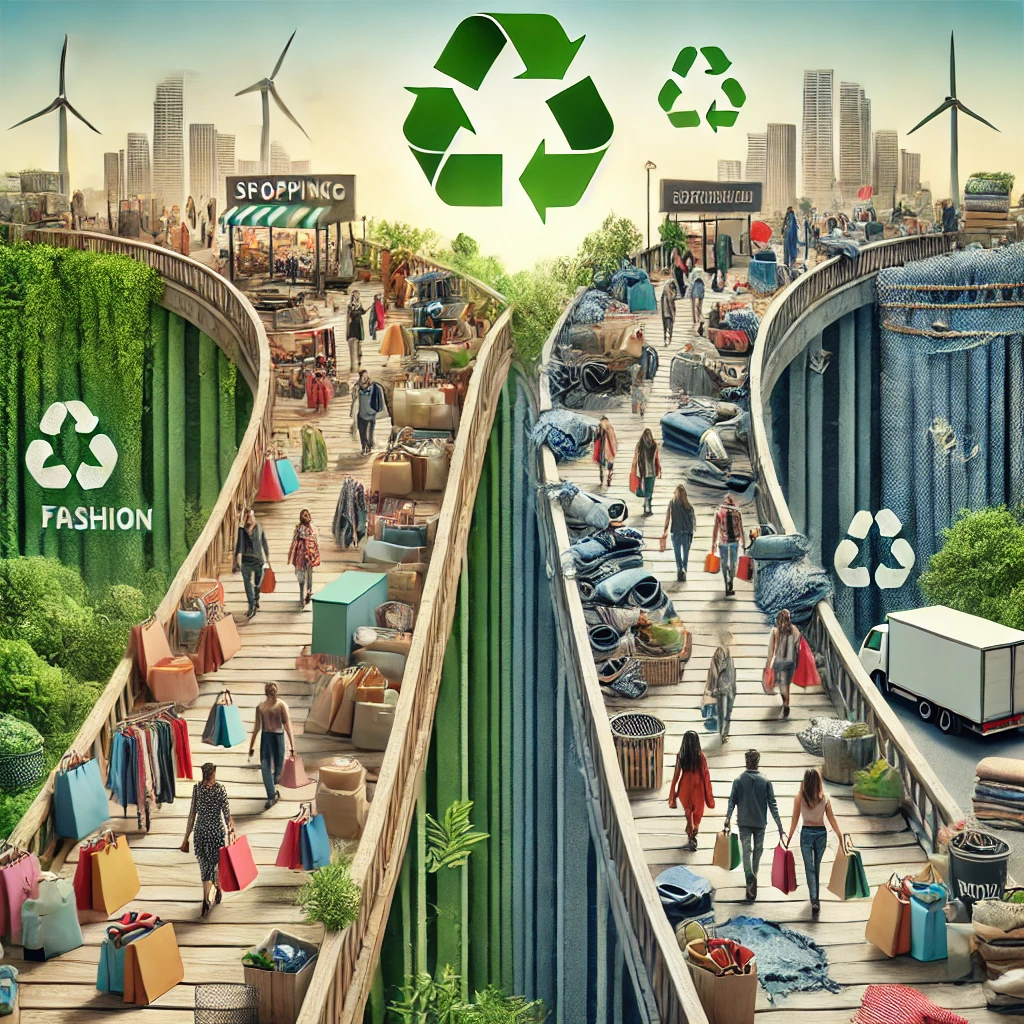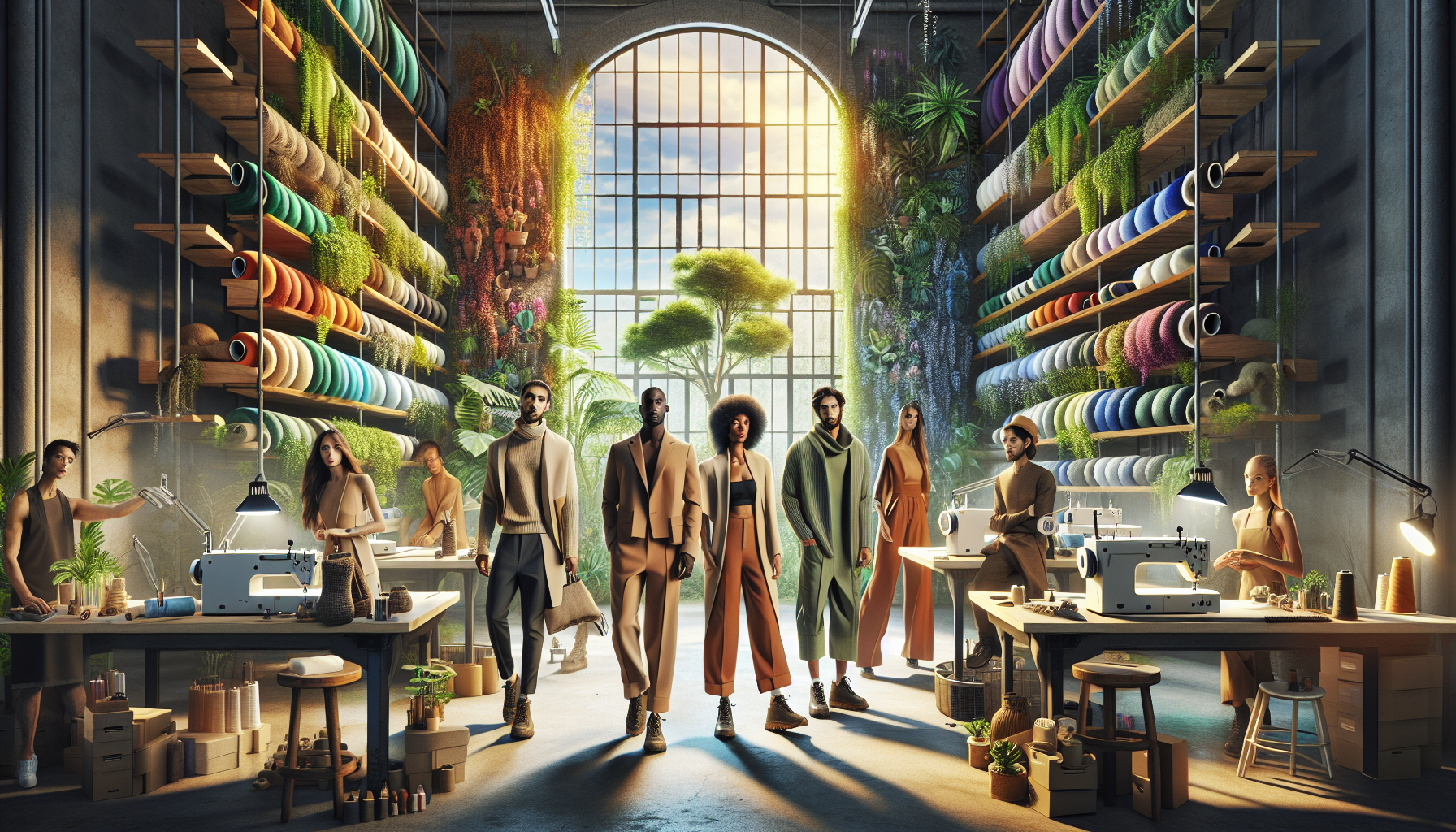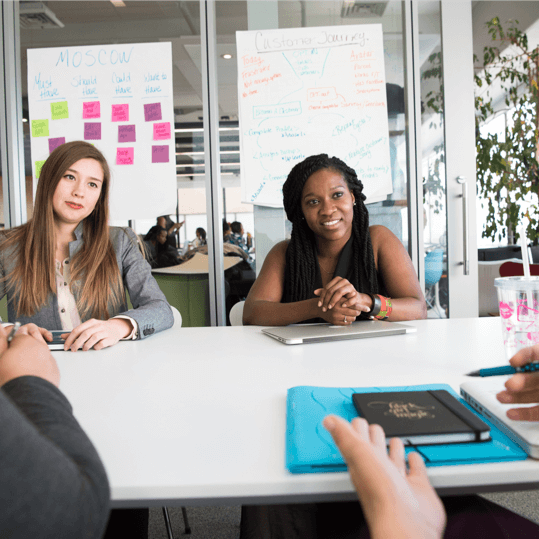Sustainability is at the forefront of everyone’s minds in modern society. With the eco crisis in full force, it’s imperative that countries across the world work together in a global effort to eradicate the harmful effects human activity and choices have had on the planet, and instead implement more sustainable initiatives and practices to ensure a stable future for planet Earth and future generations.
Ireland recognises its role in ensuring this. As a member of the UN, it has agreed to adopt and implement a list of Sustainable Development Goals (SDGs) in a bid to achieve the UN Sustainable Development Agenda by 2030 – a plan that calls for action by all countries to improve the lives of people everywhere.
In this article, we’ll explore the integral role Ireland plays in achieving said goals, highlighting their importance, how sustainability manifests itself in Irish society and some noteworthy examples of existing development projects that have been recognised for their contribution to meeting the SDGs in Ireland.
Achieving Sustainable Development Goals: What Are the 17 SDGs?
The Sustainable Development Goals, also known as the SDGs, are a set of 17 goals in total that are at the heart of the UN 2030 Agenda for Sustainable Development. They recognise that multiple issues must be addressed hand-in-hand in order to be effectively improved upon, such as the combination of ending poverty and other deprivations with strategies that improve health and education, reduce inequality and spur economic growth – all while tackling climate change and environmental preservation.
The goals themselves can be split into a selection of thematic issues, including:
- Water
- Energy
- Climate
- Oceans
- Urbanisation
- Transport
- Science & Technology
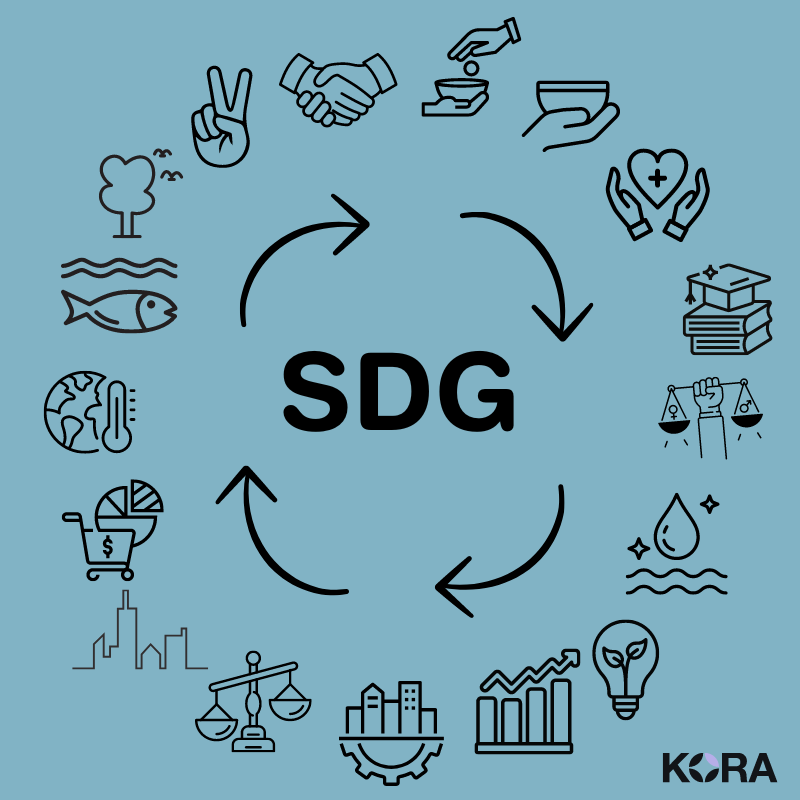
So, what are the actual goals themselves? The 17 SDGs are as follows:
- No Poverty: End poverty in all its forms everywhere.
- Zero Hunger: End hunger, achieve food security and improved nutrition and promote sustainable agriculture.
- Good Health & Well-Being: Ensure healthy lives and promote well-being for all at all ages.
- Quality Education: Ensure inclusive and equitable quality education and promote lifelong learning opportunities for all.
- Gender Equality: Achieve gender equality and empower all women and girls.
- Clean Water & Sanitation: Ensure availability and sustainable management of water and sanitation for all.
- Affordable & Clean Energy: Ensure access to affordable, reliable, sustainable and modern energy for all.
- Decent Work & Economic Growth: Promote sustained, inclusive and sustainable economic growth, full and productive employment and decent work for all.
- Industry, Innovation & Infrastructure: Build resilient infrastructure, promote inclusive and sustainable industrialisation and foster innovation.
- Reduced Inequalities: Reduce inequality within and among countries.
- Sustainable Cities & Communities: Make cities and human settlements inclusive, safe, resilient and sustainable.
- Responsible Consumption & Production: Ensure sustainable consumption and production patterns.
- Climate Action: Take urgent action to combat climate change and its impacts.
- Life Below Water: conserve and sustainably use the oceans, seas and marine resources for sustainable development.
- Life on Land: Protect, restore and promote sustainable use of terrestrial ecosystems, sustainably manage forests, combat desertification and halt and reverse land degradation and halt biodiversity loss.
- Peace, Justice & Strong Institutions: Promote peaceful and inclusive societies for sustainable development, provide access to justice for all and build effective, accountable and inclusive institutions at all levels.
- Partnerships for the Goals: Strengthen the means of implementation and revitalise the Global Partnership for Sustainable Development.
These SDGs are incredibly important, as they address the significant global challenges faced in the world and act as an effective blueprint for countries to follow in achieving a better, more sustainable future for everyone.
Sustainability in Ireland
Each country who has adopted the SDGs has set out their own goals to achieve them, and Ireland is no exception. Targeting all 17 SDGs, it has set out 169 goals in total, and has so far fully achieved a staggering 80% (134) of these – becoming recognisable as an inspiration for other countries to follow in the footsteps of.
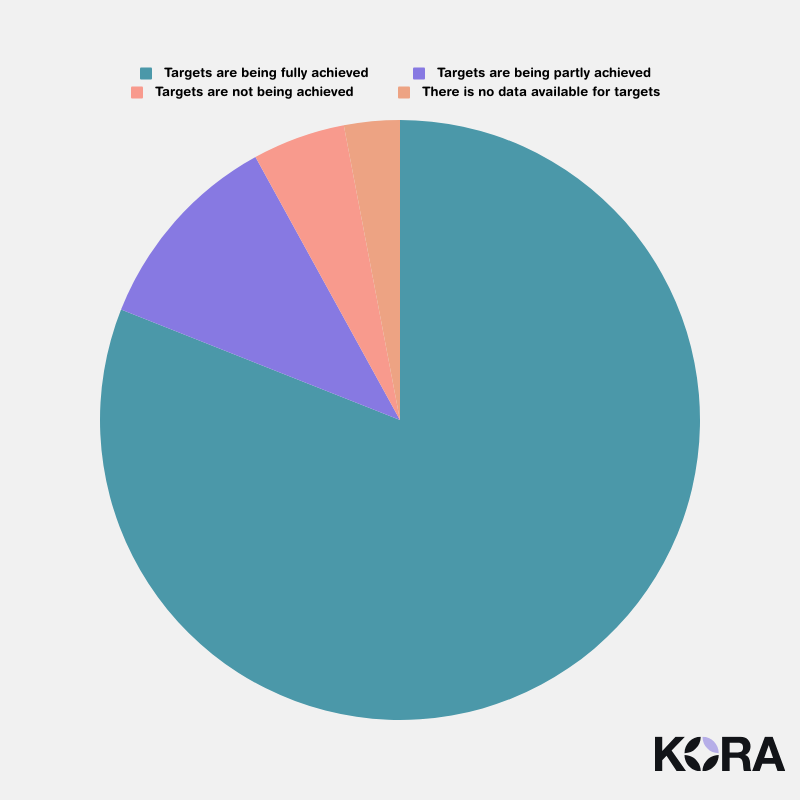
SDG Champions Programme
One of the key ways in which Ireland is measuring the success of its sustainability achievements and incentivising organisations across the country to play their part and actively respond to the SDGs is through its SDG Champions Programme.
This programme has been introduced with the aim to increase awareness of the SDGs and to demonstrate how everyone in society can contribute to achieving the goals, which is done so through the example of the existing Champions’ engagement with sustainable development.
Any organisation can express their interest to the Minister for Communications, Climate Action and Environment in joining the programme, so that they can help spread awareness further and demonstrate the sustainable practices they carry out as a way of meeting the SDGs.
Notable Sustainable Development Projects
In an effort to highlight the success of existing efforts and inspire you to follow the footsteps of current organisations who are paving the way for sustainable operations in Ireland, we’ve listed some notable sustainable development projects below – highlighting why their efforts are so worthy of discussion.
SDG Champions
Irish Men’s Sheds Association
SDGs Targeted:
- 3 – Good Health & Well-Being
- 10 – Reduced Inequalities
- 11 – Sustainable Cities & Communities
- 12 – Responsible Consumption & Production
The Irish Men’s Shed Association is the official organisation behind the men’s shed movement in Ireland – a movement that was founded in Australia. Within this movement, a ‘men’s shed’ is a community based project, where men can come together to learn, share skills and make long-lasting friendships together.
They aim to make it as easy as possible for any like-minded group of men in Ireland (both north and south of the border) to set up, run and maintain a men’s shed, providing information, resources and support to their member sheds throughout Ireland.
It has opened up important conversations about how men relate to themselves, to one another and to their communities, offering them the opportunity to maintain and improve their well-being on their own terms and within their own communities.
Musgrave
SDGs Targeted:
- 3 – Good Health & Well-Being
- 8 – Decent Work & Economic Growth
- 11 – Sustainable Cities & Communities
- 12 – Responsible Consumption & Production
Musgrave is Ireland’s leading food retail, wholesale and foodservice company. Their ethos is underpinned by sustainable principles. Not only do they support more than 41,000 jobs across Ireland, but they highlight sustainability as a pillar of their business.
With key focuses on caring for the planet, creating vibrant communities and sourcing for good, they address the need to work holistically in order to make a tangible difference. This is why they make promoting and delivering sustainability a priority from field to fork, taking a collaborative approach to unite producers, shoppers and local communities as a way to tackle and achieve sustainable goals in Ireland.
As well as having a dedicated page to sustainability on their website, they have also been producing sustainability reports for over two decades and have a dedicated sustainability news section. It’s no wonder that Musgrave is a renowned SDG Champion.
National Women’s Council of Ireland (NWCI)
SDGs Targeted:
- 3 – Good Health & Well-Being
- 5 – Gender Equality
- 8 – Decent Work & Economic Growth
- 10 – Reduced Inequalities
- 16 – Peace, Justice & Strong Institutions
NWCI is the leading feminist organisation in Ireland. They have campaigned for women’s rights for 50 years and continue to do so, aiming to achieve an Ireland where every woman and girl can achieve her full potential in an equal and just society.
They heavily campaign on realising women’s right to health and bodily autonomy and integrity, ending violence against women, recognising and valuing women’s care roles, ensuring economic independence for women and promoting women’s leadership and representation in decision-making – all of which heavily align with a number of SDG goals.
NCWI has been instrumental in bringing about change in Ireland, with some of their successful campaigns including the introduction of gender quotas for candidates in general elections, revoking the 8th amendment (an amendment which made abortion illegal and strictly restricted pregnant women’s rights to agree and disagree with or receive necessary medical treatments) and ensuring women have access to abortion services.
How Can You Get Involved?
If you own a business in Ireland, then there are steps you can take to tackle sustainability and help the country meet its targets in achieving the 17 SDGs. As well as adopting and incorporating eco-measures into your business’s operations, you can increase your impact further by utilising the KORA app.
Thanks to our intuitive app interface, you can:
- Identify emission hotspots in your business
- Inform sustainable decision-making
- Promote sustainability
- Engage employees
- Contribute to global emission reduction targets
As a business owner or manager, your version of the KORA app will offer you access to comprehensive reports and analytics of your business’s Scope 3 emissions – the indirect greenhouse gas emissions that occur as a result of your sold products or services – so that you can set targets for and track your overall carbon footprint reduction.
On top of that, you will have the ability to customise the app to align with your company’s goals and values. For example, you may choose to create competitions, set department-specific targets and/or design tailored rewards for your employees – all of which are an effective way to incentivise their engagement in reducing emissions and prioritising sustainability as a key pillar of your business.
So, are you looking to make an impactful difference? Join us here at KORA in building a better future for businesses and the planet. Book your demo today.


